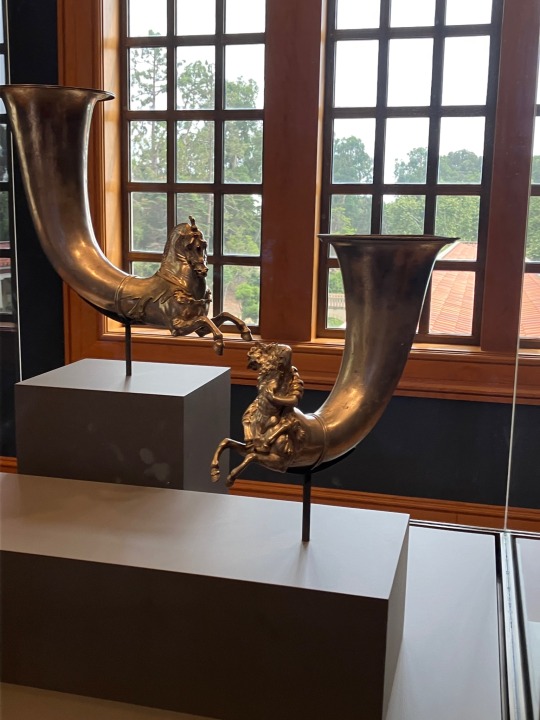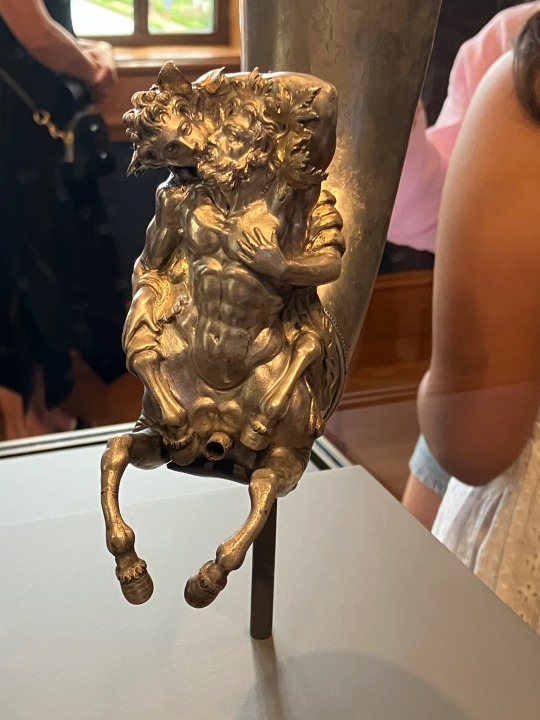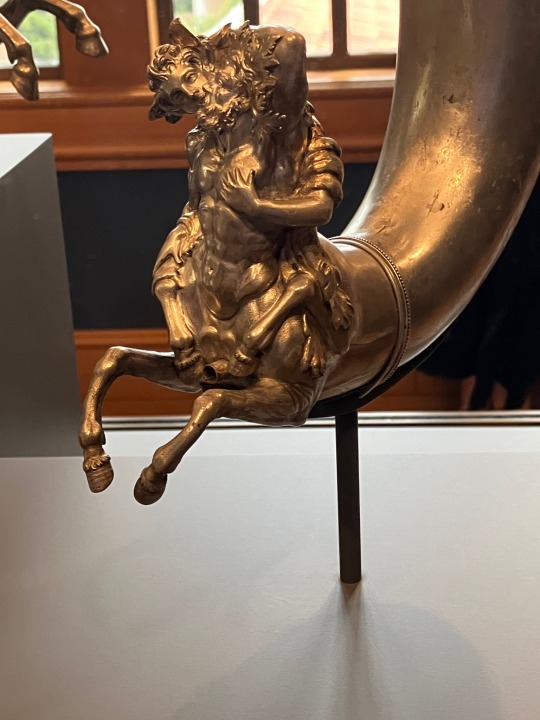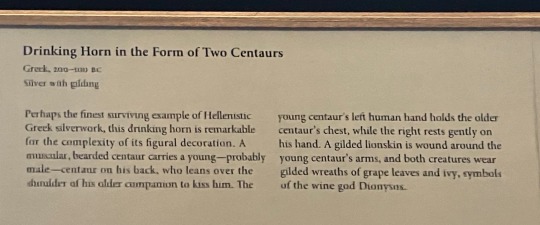#local queer classicist posts
Text
I have acquired several dusty tomes (books) from the ancient archives (college library) with which to perform evils (research paper writing).
#special thanks to the scribe (fellow student at the front desk) for helping me uncover my tomes. u a real one#local queer classicist posts#classics stuff#university stuff#university#classical studies#library#tagamemnon
3K notes
·
View notes
Photo

Electroshock: Anarchic Mediterranean Pop and New Wave
Part three. Twenty-one songs, 1981-1987, from Italy and Greece. Here's the YouTube playlist. Tracklisting below, “liner notes” below the cut.
Jo Squillo Electrix, “Africa”
Diaframma, “Tre volte lacrime”
Diana Est, “Tenax”
Litis + Trik, “Fáka”
Matia Bazar, “Elettrochoc”
Alberto Camerini, “Bip Bip Rock”
Roberta D’Angelo, “Noce di cocco”
Lena Platanos, “Ti Néa Psipsína?”
Denovo, “Niente insetti su Wilma”
Nada, “Amore disperato”
Tullio De Piscopo, “Stop Bajon”
Dreamer and the Full Moon, “Sandrina”
Marcella Bella, “Nell’aria”
Garbo, “Quanti anni hai?”
Ivan Cattaneo, “Quando tramonta il sol”
Aphrodite Manou, “Nykteriní Ekpompí”
Litfiba, “Elettrica danza”
Skiantos, “Ti spalmo la crema”
Giuni Russo, “Alghero”
Metro Decay, “Mavros Kyknos”
Melodrama, “Kyrie Eleison”
Electroshock: anarchic mediterranean pop and new wave
If I thought mainstream French pop was relatively unaffected by the radical shifts in Anglophone rock and pop fashion, Italian pop is even more so: many of the popular Italian ballads of the 1980s were virtually indistinguishable (save for details of production) from what lyrical Italian composers were turning out a hundred years previously. As (arguably) the birthplace of the post-medieval Western European music culture, Italy generally takes an if-it-ain’t-broke-don’t-fix-it attitude toward its cultural heritage, an attitude wholly at odds with American notions of generational revolt or ripping it up and starting again: operatic singing remains a populist form, and mainstream Italian rockers tend to sing in a theatrical Billy Joel vein rather than with a fuck-yr-conventions sneer.
But this mix isn’t just Italian: there’s a thread of Greek running throughout. Although combining the two Iberian nations makes geographic and linguistic sense, and expanding Francophonie beyond France is obvious, throwing Italy and Greece together is extremely unintuitive, unless you’re a dyed-in-the-wool classicist. Inheritors of the two oldest unbroken (though hardly unchanged) cultures on the European continent, the descendants of the ancient Roman and Hellenic empires had, by the penultimate decade of the twentieth century, been through a lot. Specifically, they had both slid precipitously from their midcentury postwar peaks of economic expansion and cultural export: Italy thanks to the Anni di piombo, or years of lead, in which both far-left and far-right terrorism, assassination, and thuggery cratered popular support for politics of any kind (enabling the rise of Berlusconi’s entertainment-empire kleptocracy), and Greece thanks to a far-right military junta that overthrew a center-right government and gave fascism a home on the otherwise Communist Balkan Peninsula. By the early 80s, both the Anni di piombo and the junta were spent and democracy was returning, but everything was still disorderly, even anarchic, politically and culturally.
Which is where this music comes in. The avant-garde in both Italy and Greece identified deeply with the European project, which means that much of their most modern music was sung in English, both in imitation of UK and US innovations, and because everyone else in Western Europe (save for France and Spain, where ancient conflicts with the British Isles led to a sort of linguistic protectionism) was doing the same. Between the endless fountains of italo-disco aimed at the general Euro dancefloor market and the austere post-punk acts on tiny labels reissued by “minimal wave” enthusiasts today, it can sometimes feel that almost nobody was singing in Italian in the 80s except for sensitive singer-songwriters, leftover prog burnouts, and cracked-voice divas with massive power ballads. The same was true in Greece, except more so: the midcentury art-folk forms éntekhno and laïkó were still so dominant that almost anyone who wanted to engage with modern international sounds did so in an international language.
But beyond the glossy outer wall of Italian pop, as celebrated by such events as the annual Sanremo Song Festival, there were multiple anarchic rock and pop scenes competing for attention, gigs, and recording time. The Italian rock scene was hugely fragmented: although Milan remained the center of the culture industry, as it has been for centuries, each city had its thriving underground scene, with Florence, Naples, Sicily, Bologna, and even Rome represented below. Below a certain level of hitmaking status, the differences between shiny italo-disco and weirdo pop melted away: although some synth experimentalists encountered a hardline anti-synth stance among post-punk scenesters, just as many punks ended up making goofy hairspray records as ever remained true to the imagined spirit of ’77. Italy was perhaps the place where the distinction between disco and punk was collapsed most often: both let unlikely performers queer their image and ignore the mainstream, and both were animated by throwing whatever was at hand against the wall to see what stuck.
Enough generalizing, though. Here are twenty-one songs, fourteen in standard Italian, one in the Neapolitan dialect, one in Church Latin and Greek, four in modern Greek, and, sigh, one in English because the hell with it, my mix my rules.
1. Jo Squillo Eletrix Africa
20th Secret | Milan, 1982
One of the few female voices to emerge from the original punk boom in late-70s Italy, Giovanna Coletti had fronted the all-girl band Kandeggina Gang before recording an essential post-punk record, Girl Senza Paura, in 1981 as the leader of a band named after her punk moniker Jo Squillo. “Africa” was the follow-up single: identifying and foregrounding the latent colonialism in acts like Bow Wow Wow and the Slits, it was apparently dedicated to Nelson Mandela, but Squillo’s cartoonish yelps and the “tribal” rhythms are still patently offensive as representations of Africanness. The lyric, however, is as righteous a left-wing post-colonial solidarity message as anything Europe produced in the 80s, which made it even weirder when Squillo went solo, dove into synthpop, and the “Africa” single was repurposed as a B-side called “Voo-Doo.” Colonialism always wins.
2. Diaframma Tre volte lacrime
IRA | Florence, 1986
This song, with its brightly strummed guitars, is about as upbeat as the long-running Diaframma, who brought Joy Division levels of somber bleakness to the Florentine post-punk scene, ever got: and its title translates as “Three Times the Tears.” Singer Miro Sassolini’s stentorian croon defined this gothic era of the band; when guitarist Federico Fiumani, the band’s songwriter, took over in 1989, they became a more traditionally punk act, and are still active today.
3. Diana Est Tenax
Ricordi | Milan, 1982
Although she sometimes turns up in italo-disco compilations these days, Diana Est was neither an anonymous vocalist nor a dance-pop starlet. Her small, rather unsteady voice, her androgynous, semiclassical fashion, and punk-turned-balladeer Enrico Ruggeri’s overtly intellectual lyrics — the chorus to “Tenax” is in Latin, a paraphrase of Terence — made her slender discography (three singles in as many years before she quit the music business in disgust) a cult favorite among Italian pop fans. She is now a professional antiquarian, and by all accounts much happier.
4. Litis & Trik Listeía
Columbia | Athens, 1982
The mononymic Litis had been kicking around the Greek rock underground since the late 60s, hopping from folky ballads to vaguely progressive bands and back again. When he hooked up with muso combo Trik in the early 80s, the result was a loopy, weird art-punk record that is both compulsively listenable and one of the high points of the Athens new wave. “Ληστεία” (Robbery), a bop-along jam about petty crime and the hypocrisy of the petite bourgeoisie who demand it be prosecuted, was their biggest hit, if the handful of local television appearances that have been uploaded YouTube qualify.
5. Matia Bazar Elettrochoc
Ariston | Milan, 1983
Both the most forward-thinking band in Italy in the early 80s and one of the all-time European pop acts, Matia Bazar started in the mid-70s as a Eurovision-friendly soft-rock group in the ABBA mold, with Antonella Ruggiero there to look pretty and sing sweet choruses. But after keyboardist Mauro Sabbione joined in 1980, they gave themselves a new-wave makeover, experimenting with rhythm and texture, and Ruggiero’s elastic, four-octave voice commanded center stage. There were a solid half-dozen Matia Bazar songs recorded between 1981 and 1985 that I considered for this mix: “Elettrochoc,” with rhythmic patterning not a million miles from what drum ’n’ bass would be doing with the “Amen” break a decade later, and Ruggiero using her whistle register as casually as Mariah Carey, is only the most futuristic of their songs by a small margin. After Sabbione left in 1985 to pursue more experimental work, they dumbed it down slightly and had the biggest hit of their career. Ruggiero would quit the band in 1989, going on to explore classical and world music forms, but Matia Bazar has continued their pop chancery, not unsuccessfully, with a revolving door of singers; the drummer is the only original member left.
6. Alberto Camerini Bip Bip Rock
CBS | Milan, 1981
Born in Brazil to Italian parents, Camerini’s first musical efforts were pop-Brazilian melodies for the Italian market. But during the new-wave craze of the early 80s, when anything with a broad enough hook seemed like it might have a chance, he had his biggest success with novelty singles like “Rock & Roll Robot” and “Tanz Bambolina.” Very much in that vein, the unabashedly silly “Bip Bip Rock” is a love song between a harlequin and a computer set to a Buddy Holly shuffle: its gender-playing parent album, Rudy e Rita, is a minor masterpiece of bubblegum pop kitsch.
7. Roberta D’Angelo Noce di cocco
Suono | Rome, 1983
When she burst onto the scene in the mid-70s with caustic, unconventionally melodic story-songs about prostitution and feminism, the 20-year-old conservatory-trained D’Angelo seemed poised to be an Italian Joni Mitchell, or maybe even Kate Bush. But label shenanigans, her restless, exploratory bent, and lack of commercial success meant that this, in 1983, would be her last single: a B-52s-y song about a coconut co-written and performed with skittery Roman art-funk collective Bu Bu Sex. When she performed it on television, she also proudly plugged the serialist piece for piano and clarinet she had composed for the B-side: perhaps it’s no wonder that for the last thirty years her nerdy enthusiasm and musical rigor has been expressed in music teaching, where she is beloved (and active in YouTube comments).
8. Lena Platonos Ti Néa Psipsína?
Lyra | Athens, 1985
Kate Bush is also a predictable comparison for Greek composer Lena Platonos, the daughter of a concert pianist who studied composition, then started to make her own art music, got sidetracked by synthesizers, and ended up closer to Laurie Anderson (only more popular), murmuring her fractured, elusive poetry over her own experimental synth programming. “Τι νέα ψιψίνα,” from her 1985 album Galop, is about as close to pop as she ever got: the title literally translates “What’s New, Pussycat?” but it’s no Tom Jones cover: abstract, political, metaphysical, and Greek to the bones, it’s a gorgeous highbrow punctuation to the sillier elements of this mix.
9. Denovo Niente insette su Wilma
Suono | Catania, 1984
Speaking of which: Sicilian band Denovo, with their XTC-inspired hydraulic sock-hop rhythms, sliding pitches, and “way-hey”s, have one of the goofiest sounds in this mix. The title song from their debut EP, this song is a comic piece of macabre: the title translates to “No Flies on Wilma,” and it turns out to be, of course, about Wilma’s funeral. However, the saxophone-led middle eight adds a McCartneyesque lyricism to the herky-jerk, foreshadowing the more varied melodic career Denovo would go on to have.
10. Nada Amore disperato
EMI | Milan, 1983
The capacious mainstream Italian music industry loves few things more than a comeback, and when singer Nada Malanima, who had had her first success as a teenager in 1969 but had not been in the public eye for years, had a smash hit with the subtly pulsating “Amore disperato” (Desperate Love) in 1983, it was a song the whole country could get behind, even new-wave sourpusses. Nada’s low, assured voice, with its calm ah-has and careful reaches for high notes, is an undemonstrative rarity in Italian pop, and her portrait of kids falling for each other in a nightclub then losing each other is all the more effective for never sounding desperate itself.
11. Tullio De Piscopo Stop Bajon
Bagaria | Naples, 1984
A jazz drummer and session man who had played with everyone from Perez Prado and Astor Piazzolla to Gerry Mulligan and Richie Havens, Tullio de Piscopo was perhaps the only middle-aged Italian hip enough to pull off a rap-inflected single in 1984. That the groove is such a monster doesn’t hurt — acid jazz as a concept more or less starts with this record, and it was massively influential in the Chicago house scene as well — and the half-rapped, half-scatted lyrics in his native Neapolitan celebrating the arrival of spring gave it a timeless, otherworldly quality that a more dominant literary language like Italian might have missed entirely. I would be surprised if I was introducing this record to many people for the first time, but it startled me with its beauty, all seven minutes of it, and I knew I had to include it.
12. Dreamer and the Full Moon Sandrina
EMI | Athens, 1984
My general rule with these European mixes has been not to include music in English, partly because the sensual qualities of the different languages are much of the point for me, and partly because I’m intentionally stepping off the familiar Anglophone paths: I began these mixes cross about Spanish and Portuguese pop being neglected, and I’ve continued it cross about all local languages being neglected. That said, the minute I heard “Sandrina” I was charmed to within an inch of my life: Dreamer and the Full Moon were probably the most successful new-wave band in Greece, and their entire catalog was conducted in English: this, their biggest hit, takes traditional Greek rhythms and instrumentation and makes a lovely lovelorn rock song out of them.
13. Marcella Bella Nell’aria
CBS | Milan, 1983
Like Nada, Marcella Bella had been a regular performer on summer festival stages since the 1960s: unlike her, she had never really spent time in the wilderness. The product of a musical Sicilian family (her older brother Gianni was also a pop singer and producer, and co-wrote “Nell’aria”), she had been a solidly popular singer for a decade when the billowing, helium-light “Nell’aria” (In the Air) became not just one of the big hits of the year, but perhaps the Italian hit of the 1980s. It had legs: I remember hearing it in Guatemala in the early 90s, where it sounded perfectly contemporary alongside blissed-out records from Madonna, Cathy Dennis, and P.M. Dawn. Bella’s featherweight voice, replicated endlessly, and the throbbing heartbeat rhythm make it eternal.
14. Garbo Quanti anni hai?
EMI | Milan, 1983
Easily the most successful “new wave” artist in Italy, in the sense of being frankly imitative of British sources, the singer born Renato Abate took the same approach to the Bowie of the Berlin Trilogy as Gary Numan did (i.e. making it the foundation of an entire career in music), but where Numan absorbed Bowie’s cold remove and sci-fi premises, Garbo absorbed the political concerns and cabaret longueurs. His first single, “A Berlino… va bene” (In Berlin… It’s Okay), was a sensation, but my fondness for this later hit (tr. How Old Are You?) cannot just be attributed to the fact that Antonella Ruggiero sings unmistakable backup: it’s a small masterpiece of mood, as Garbo’s prematurely mature voice (he was twenty-five!) wrings every drop of reserved pathos out of a lyric about aging out of sexual desire.
15. Ivan Cattaneo Quando tramonta il sol
CGD | Milan, 1984
I’m not sure any one- or two-sentence biographical sketch can do justice to Ivan Cattaneo, one of the most essential Italian musical performers of the late 70s and early 80s. He embraced the schlockier elements of both disco and punk early on, creating a flamboyant, polymorphous persona who sang about Batman, homosexual love, and zebras with outrageous zeal. Starting in 1982 he embraced ’50s and ’60s pop, recording cover albums of classic hits with modern pop sheen, but when the market didn’t respond, he quit pop music to explore painting, multimedia projects, and digital art. This (tr. When the Sun Sets) was his last single for a long time, a hiccuping electro-Beach Boys gem that still makes time for carnality.
16. Aphrodite Manou Nykteriní Ekpompí
Lyra | Athens, 1984
One of the most popular exponents of éntekhno, or Greek poetry set to traditional music, Aphrodite Manou (born Aglaia Dimitriadis; her sister Maria was even more popular) had been singing others’ compositions for over a decade when she released a 1984 album of her own songwriting. “Νυχτερινή εκπομπή,” the title track, which Google wants to translate “nocturnal emission” but means “Nighttime Broadcast,” is a lovely fusion of modern soft-rock reverie and classic Greek music, as the violin swirls around her modern lyric about driving around in a Volkswagen listening to rock music, and falling in love with someone in the next car over who drives away forever. Perhaps the Greek equivalent of a country singer using contemporary production techniques, her melodies are timeless but stick in the head.
17. Litfiba Elettrica danza
Contempo | Florence, 1984
The other great Florentine rock band of the era (along with Diaframma), Litfiba has gone from strict post-punk dourness in the early 80s to stadium-filling political anthems (rather like U2; and indeed charismatic frontman Piero Pelù is rather reminiscent of Bono). “Elettrica danza,” a retelling of Bertolucci’s Last Tango in Paris in violin-scraping funk-rock form (replacing the tango with the cha-cha), originally appeared on an EP named for their cover of David Bowie’s “Yassassin,” in case their art-rock cred was in any doubt.
18. Skiantos Ti spalmo la crema
CGD | Bologna, 1984
One of the most controversial Italian acts of the late 70s, Skiantos were as much anarchic comedy troupe as ska-punk band, with singer “Freak” Antoni’s unnecessarily aggressive vocals, dadaist lyrics, and live performances that sometimes included no music at all. By the mid-80s they had mellowed considerably, and “Ti spalmo la crema” (I Rub the Cream on You, a double entendre about applying sunscreen at the beach) is almost a Madness song — except hornier, as befits Italian stereotypes.
19. Giuni Russo Alghero
Bubble | Milan, 1986
Sicilian singer Giuni Russo was never an entirely comfortable fit with the summery, beachy songs she kept having hits with throughout the 80s: her untrained but powerful voice sometimes overwhelmed lightweight pop songs like “Un’estate al mare” or “Mediterranea,” and it wasn’t until she changed labels in 1986 and took more control over the sound of her music that she found the perfect combination with “Alghero.” Still a summery, beachy song — it’s about a vacation romance on the Sardinian coast, don’t tell mama — the inventive throwback production finally catches up with her voice. She would get artier and more experimental in the late 80s and 90s, but I love her summertime blues.
20. Metro Decay Mavros Kýknos
Creep | Athens, 1984
Probably the most high-profile Athenian new wave band to stick to Greek in their lyrics, Metro Decay was still very much a cult act: one single and one LP in an austere early-Cure mold, and that was it. But they’ve had a long afterlife, as every generation of Greek rock fans rediscovers them. The opener from their LP, “Μαύρος κύκνος” (Black Swan) is a typically melodic dirge, as Antonis Maniatis croons about trauma, entropy, and poetry.
21. Melodrama Kyrie Eleison
D.E.A. | Florence, 1987
After leaving Matia Bazar, synth wizard Mauro Sabbione formed the more industrial Melodrama with avant-garde contralto and choreographer Cinzia Bauci, with whom he has worked on and off under various names for the last thirty years. Melodrama only produced a handful of records as a coherent act in the late 80s, as Sabbione found himself in demand as a session musician and Bauci’s theater career took precedence, but this forgotten twelve-inch ZTT-ish setting of traditional liturgical prayers. punctuated ominously by assorted ecclesiastical vocabulary, precedes similar experiments by the likes of Enigma by years.
I swear I have not been trying to make these mixes happen once a week; it’s just that they really have been coming together that quickly. (And sure, I’ve been spending a lot of my free time since April swimming around in the raw materials for them.) Anyway, the next one, whenever it happens, will be heading in a more northerly direction, and finally leave the Romance languages (and my linguistic comfort zone) behind for good.
26 notes
·
View notes
Text
A piece from the Getty Villa that I am very not normal about: The drinking horn with the two kissing gay centaurs.




#getty villa#classical studies#classics stuff#local queer classicist posts#queer stuff#lgbtq#gay centaurs#classical art#silverwork#greek art#art stuff#queer art#tagamemnon
610 notes
·
View notes
Text
Thinking about the random cat at the ruins of the Temple of Zeus at Olympia that I saw when I visited in 2018. The tour guide said they’d named her Hera because she was always sitting on the remains of one of the pillars looking very proud of herself as if she’d personally destroyed the temple. I love you queen, I hope you’re happy wherever you are.
#classics stuff#local queer classicist posts#classical studies#tagamemnon#cat#cats#olympia#temple of zeus#Hera#Zeus
43 notes
·
View notes
Text
Ten minutes until the gang is lost in the woods in the middle of New Jersey and we’re never gonna make it to LA. btw
#riordanverse#pjotv#pjotv spoilers#pjo spoilers#pjo#percy jackon and the olympians#the lightning thief musical#tlt musical#local queer classicist posts
56 notes
·
View notes
Text
I finally got to read Chalice of the Gods and I was not disappointed. Ganymede is probably one of my favorite characters in Greek myth but I wasn’t ever sure he would get to be properly portrayed in the series due to the nature of his story combined with the constraints of a middle grade series. I was afraid if he ever did properly show up the darker elements of his story would get brushed over and that would kinda suck, so part of me never wanted Rick to even try with Ganymede. But I really like how he handled him in this book. The clear terror of Ganymede throughout, how gross Zeus feels (“I like watching him walk away” die in a fire you piece of shit I swear to god), but all handled in the way you might expect the same heavy topics to be handled irl when there are children in the room. The story isn’t gone, the effects are very much there and those who know can see it, but nobody says it and it makes sense that they don’t. Ganymede wouldn’t be comfortable talking about it to a bunch of teenagers he doesn’t know, the other gods/goddesses we meet along the way would either be too uncomfortable with the subject matter in general (as many if not most people would be), not want to tell Ganymede’s story for him, be hesitant to draw Zeus’ ire by portraying him in a bad light, or just not see the situation as a problem due to their nature of being terrible people. It absolutely makes sense that nobody says what’s going on. So even when it feels like it’s being brushed over, it feels like the characters in the world are doing that for their own reasons, not that the author is doing it to spare the innocence of his young readers.
(It’s also pretty on-brand that Percy knew next to nothing about the myth and didn’t look it up. His assumption that the myth would probably be told from Zeus’ side and therefore not be terribly helpful is understandable, but he failed to consider that Zeus is such an asshole that “Zeus’ side” might still include some pretty damning details because Zeus would fail to recognize that he’d done anything wrong that he might want to leave out. I was impressed that Percy took the time to try and look Gary up, though, even if the attempt was unsuccessful. That’s character development hard at work, folks.)
#anyway we stan and support Ganymede on this blog#pjo cotg#cotg spoilers#chalice of the gods#ganymede#classics stuff#riordanverse#local queer classicist posts#percy jackon and the olympians#percy jackson#tw rape#tw abuse#I don’t really know if tw are necessary when being this vague but better safe than sorry#let me know if there are others I should add. I don’t talk about heavy shit much so I’m not well-versed in tagging for it
51 notes
·
View notes
Text
Finally started listening to Epic the Musical and was wondering why I hadn’t listened to it before. Then I got to the middle of the second song and could already feel the obsession setting in, and remembered that I avoided it because I knew I didn’t have time for a new Thing. Oh well, too late now.
#the religious people out there should probably start praying for the rest of my household now#this is the only music I will be playing for the foreseeable future#epic the musical#classics stuff#homeric things#neurodivergent things#local queer classicist posts
62 notes
·
View notes
Text
I would like a full version of the consensus song to be available on all major streaming platforms please. I need it. For. Reasons.
#riordanverse#pjotv spoilers#pjotv#grover underwood#pjo spoilers#percy jackon and the olympians#local queer classicist posts
20 notes
·
View notes
Text

Hello, I'm new here and thought it would be polite to contribute something of value to the world of tumblr before I disappear to look at memes forever, and in my opinion there's nothing more valuable than this picture of Squeak Studmuffin "the Spudmuffin", so here he is.
Bask in his glory, internet. Be amazed at his handsomeness. Bow down at the awesome sight of this elderly gentleman in his rainbow tunnel.
#this man was 8 1/2 when this picture was taken#seriously the bestest boy#elder guinea pig#guineapigs#guinea pig#guinea pigs#cute animals#cute pets#local queer classicist posts
91 notes
·
View notes
Text
Just saw Hadestown. Will not be normal for some time.
#hadestown#very happy with my decision to wait until the live performance to hear the music#Orpheus x Eurydice retellings will never get old#local queer classicist posts
7 notes
·
View notes
Text
I think Epic the Musical by Jorge Rivera-Herrans and The Blues of Achilles by Joe Goodkin should kiss on the mouth actually. With tongue, I think.
#they could be ✨🏳️🌈 roommates 🏳️🌈✨#dramatically different vibes but both projects born of passion#classics stuff#classics memes#homeric things#local queer classicist posts#classical studies#tagamemnon#the blues of achilles#joe goodkin#epic the musical#jorge rivera herrans
12 notes
·
View notes
Text
HAPPY STAB CAESAR DAY EVERYONE
#classics stuff#classics memes#local queer classicist posts#ides of march#julius caesar#we should totally just stab caesar
11 notes
·
View notes
Text
Prepare your goats, mutuals et al!
It’s Lupercalia’s Eve!
9 notes
·
View notes
Text
Also HELP I accidentally called Theseus a fuckboy in class to my professor NOOOO
I mean I’m right but still definitely meant to say that with different words
8 notes
·
View notes
Text
If someone could invent a way to make and maintain friendships that doesn’t require me to put myself out there or feel like a burden, I would pay them money. Like a whole 3 money or something.
12 notes
·
View notes
Text
My professor when I call the Osiris statues made of dirt and barley seeds that the Ancient Egyptians would sprout during kiyahk “Osiris-Shaped Chia Pets”:

#he agreed after he took a second to think about it#further cementing my position as Best Student#one autistic comment at a time#I cannot be the first person to call them that though. that’s what they are#classics stuff#local queer classicist posts#university stuff#osiris#chia pet#classics memes#neurodivergent things
12 notes
·
View notes